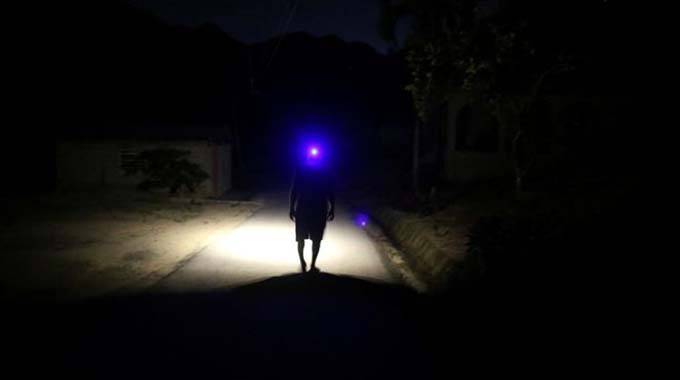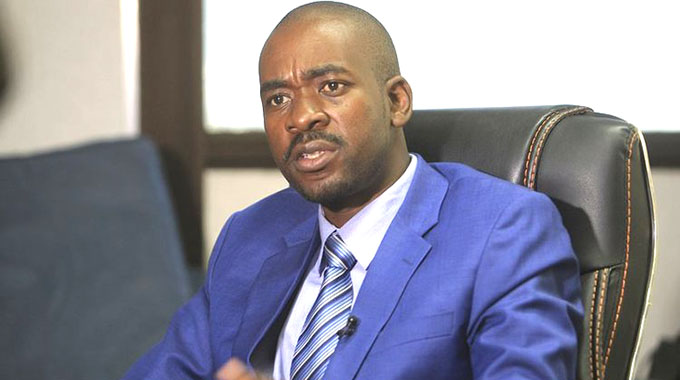Power outages: Criminals stalk residents in the dark

Roselyne Sachiti Features, Health and Society Editor
Martha Makoni (26) works in a clothing shop in Harare’s Central Business District.
It is Tuesday June 4 and she picks up her handbag and does her makeup to signal the end of a working day. Depending on the volume of customers, she usually rounds off work around 6pm or thereafter. Her trip to home in Kuwadzana 1 sometimes takes up to 30 minutes depending on whether she gets public transport as soon as she gets to Copacabana rank.
As she disembarks the kombi, the wintry cold welcomes her as at the same time darkness temporarily blinds her.
The streets are “empty”, the dark night seems to have chased vegetable vendors from their wooden stalls.
Scanning around, the streets look nothing like they do in the daylight as tower lights are off because of the 2pm power cut which will last till 9 or 10 pm. The only lights come from passing cars with high beams.
Looking left and right, then left and right again, and behind just to make sure no one is following her, Makoni suddenly comes face to face with four unfamiliar looking men who snatch her groceries and flee.
It is difficult to make out their faces in the dark. In a state of shock, she runs home some 100 metres from where she was robbed.
She is just one of the residents, who because of the absence of public lighting in most of Harare’s residential areas as a result of load shedding, have come face to face with criminals.
What makes the situation worse is that in most residential areas, electricity used by tower lights is supplied by the Zimbabwe Electricity Transmission & Distribution Company (ZETDC).
In May, ZETDC announced that it had been forced to cut power generation at its Kariba Dam power plant due to low water levels. Since the Kariba Dam level is only 34 percent full and cannot generate electricity at optimal capacity load shedding lasting up to eight hours per day was introduced.
ZETDC also revealed that it is also facing generation constraints at Hwange Power Station, and limited imports from Eskom in South Africa and from Mozambique.
As a result, each time there is electricity load shedding at night, residential areas like Kuwadzana, among many others, are covered in a thick blanket of black putting the security of residents, especially women and young children at high risk.
It is clear that load shedding is a reality that the country has to grapple with as it comes with numerous other social ills like crime.
Taking advantage of the darkness, evil prowls and stalk streets. To criminals, darkness brings an opportunity to rob people as victims cannot easily identify them thus some rarely make reports to police.
Load shedding also has an impact on road safety as power failures affect traffic lights and traffic flow.
When there are power cuts important road safety features such as street lighting can become obscured. This makes it quite hard for motorists to spot road hazards such as potholes, debris and even pedestrians on the road surface.
Motorists are also at risk of criminals lurking in the dark as during load shedding, hijackers and “smash and grab” criminals might see an opportunity for themselves.
There seems to be an upswing of crime during scheduled blackouts in Harare.
Most people have reportedly lost their valuables and cash in a spate of robbery cases recently and implored the Zimbabwe Republic Police to intensify patrols to monitor crime hotspots in and around Harare.
There are also some reports of groups of criminals targeting people along Sam Nujoma Street, Africa Unity Square, at major road intersections, in the Avenues area, the Harare Gardens and other roads during the evening.
The ZRP recently urged members of the public to desist from using secluded paths and also to avoid keeping large amounts of money at home.
National police spokesperson Assistant Commissioner Paul Nyathi also recently assured citizens and visitors that adequate security measures had been put in place to ensure peace and tranquillity countrywide.
He said the ZRP was conducting general patrols, blitz, stop and search patrols in all Central Business Districts, industrial sites, residential areas and other places, which are usually frequented by the public with a view of getting rid of the malady of criminality.
With load shedding affecting many residents, some solutions like solar-powered street and traffic lights could make a difference.
Globally, solar power is getting increasing popularity as a dependable source for street lighting. Some of the benefits associated with solar street lights include reduced dependence on conventional energy, conservation of energy and less reliance on the national grid.
In countries like Zimbabwe experiencing abundance of sunlight, solar lights are the best option to light up the streets, residential areas and other public spaces.
While solar powered street lights could be a solution, residents also fear the same criminals who mug them may also be tempted to steal solar panels once they are installed on tower lights.
It then becomes important for the police to intensify night patrols in residential areas. Residents can also form strong neighbourhood watch committees that can also do night patrols.
It is also important for the new ZETDC board that will be appointed to come up with speedy solutions that address power shortages and hopefully make residential areas safer. Public lighting at night is important.










Comments